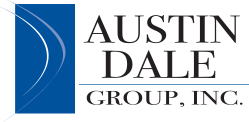
Why the SaaS/Cloud Business Model Drives Higher Valuations
SaaS/Cloud businesses are achieving higher valuations than traditional software and service companies across the board. It is interesting to note that this factor is causing traditional software companies to either convert their delivery and pricing to a SaaS model, or to acquire SaaS companies.
So how do the valuation approaches for traditional software or service companies differ from SaaS/Cloud companies? For traditional companies we generally use two approaches in our go-to-market valuations. One is the market approach – analyzing the past sales of similar companies. The second approach is the discounted cash flow (DCF) approach – using future free cash flow projections and discounting them to arrive at a present value.
On the other hand, SaaS/Cloud companies are achieving valuations of multiples of revenue. According to “The Software Industry Financial Report” from Software Equity Group the median SaaS exit multiple was an average of 71% greater than on-premise software.
So let’s take a closer look at the main factors that differentiate SaaS/Cloud valuations.
Recurring revenue and fast growth
SaaS/Cloud businesses frequently charge a monthly subscription or some type of recurring fee. As a result, their earnings are more predictable and they can take in more money if they can keep a customer for a long time. As the cloud model is becoming widely accepted, many SaaS/cloud companies are also growing very fast. Their fast growth coupled with recurring revenue is a major reason why their valuations are higher.
Higher lifetime value of customers via long-term contracts
Perhaps SaaS companies don’t get the big up-front fees that traditional software companies enjoy. But the lifetime value of each customer will often be greater, that is if they can minimize churn and ensure that customers are happy. Those long-term contracts from satisfied customers reduce their earnings variability into the future and lead to higher valuations.
Larger market via the cloud
As the cloud grows and gains in acceptance, SaaS companies benefit from tremendous scalability and are gaining a bigger piece of an expanding pie. Each new customers means new revenue for the company at zero or low cost.
Proprietary technology and IP
SaaS/Cloud businesses often have proprietary technology and intellectual property which increases their uniqueness and improve their valuation.
More deal activity
Lastly, the fact that there is more deal activity in the SaaS/cloud space is also causing high multiples. In other words, when competition to acquire these companies heats up, the valuations increase in tandem.





